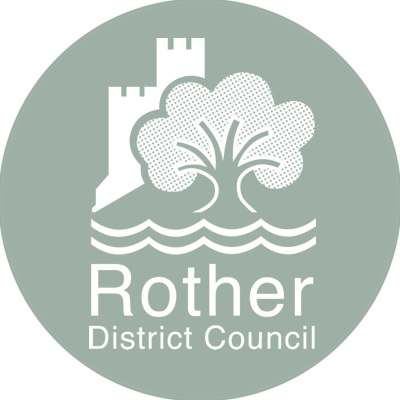Agenda item
Draft Revenue Budget 2023/24 Proposals
- Meeting of Cabinet, Monday 9th January 2023 6.30 pm (Item CB22/61.)
- View the background to item CB22/61.
Minutes:
Consideration was given to the report of the Chief Finance Officer on the preparation of the draft Revenue Budget for 2023/24. The report outlined the likely financial position, cost pressures and key issues that Members needed to consider as part of the second phase of the budget setting process. Appended to the report were details of the summary draft Revenue Budget, the summary information for each service area, main changes from the 2023/24 budget and the Council’s usable revenue reserves.
The following assumptions had been made in calculating the draft Revenue Budget:
· inflation of 4.57% applied to non-pay budgets except for contracts where specific indices were applied;
· with effect from September 2023 salaries had been increased by 3% and an allowance of 1% assumed for staff turnover;
· the use of transfers between existing budgets had been applied enabling funding to be re-directed into priority areas;
· interest rates of between 3.2% and 4.4% had been used to calculate the financing costs on capital investment schemes;
· between 0.05% to 4.40% interest rates had been used to calculate investment returns; and
· an assumed Council Tax collection rate of 98.3%.
The following key issues were highlighted:
· the draft Local Government Finance Settlement announced by Government in December applied to 2023/24 and 2024/25 only and did not guarantee any future funding streams beyond this two-year period; the Council’s Core Spending Power had been set at £12.3m, an increase of £0.9m from 2022/23;
· the East Sussex Business Rates Pool for 2023/24 and 2024/25 would be retained;
· the council tax referendum principle for Rother would allow an increase in council tax of £5 or 3% (1% increase from 2022/23) whichever was the highest; it had been assumed that the Council would increase council tax by the maximum allowed before a referendum was required – for Rother, this was 3% and would raise an additional £30k (approximately); it was noted that other preceptors had greater flexibility to raise income than Rother District Council;
· for 2023/24, to ensure the Council remained within the referendum limit, it was assumed that £198.85 would be agreed for a Band D property;
· the 2023/24 council tax base had been calculated at 38,520.8 and showed an increase of 293.80 Band D equivalents mostly due to an increase in chargeable dwellings and eligible discounts, reduction in Council Tax Reduction Scheme claimants and other minor changes;
· new Government funding streams in relation to ‘Extended Producer Responsibility for Packaging’ Schemes were anticipated during 2023/24; details would be announced once received;
· the Council was expected to receive Government grants of £1,756m which represented an increase of £106,000 from 2022/23;
· in response to inflationary pressures, the DLUHC would combine the New Homes Bonus legacy payments with the Lower Tier Service Grant; the Council’s allocation would be £473,000;
· service grants had been reduced to £92,000 for 2023/24;
· to implement the requirements of the Elections Act 2022, the Council would receive £32,000, as well as an unspecified amount to administer the impact of business rate revaluations (£20,000 had been included within the budget); and
· £2.217m was proposed to be drawn down from Usable Revenue Reserves with a further drawdown of £186,000 to support capital expenditure; a total drawdown of £2.403m which would reduce reserves to £5.125m by 31 March 2024. Reserves were forecast to reduce to 33% of Net Revenue Expenditure by the end of 2023/24.
It was noted that the Government was aware that many Councils’ level of reserves had increased over the two years of the pandemic and were in favour of reserves being used to maintain service levels, provided that an adequate level of Reserves was maintained to support financial sustainability.
The cost pressures that might affect the Council’s finances were highlighted within the report and these included contractual inflation, homelessness demands, increased external audit fees, net financing costs, increased staffing costs, non-pay inflation and the recovery of housing benefits overpayments.
In order to give the Council greater budget flexibility and reduce reliance on reserves, it would be essential to deliver the Financial Stability Programme (FSP), including the devolvement of services to some town and parish councils and identify savings from the departmental service planning process. Heads of Service and Service Managers had been tasked with finding savings to build into the 2024/25 budget but ultimately it would be a decision for Members as to where the savings were made.
The budget consultation was currently ongoing and due to close on 31 January 2023; interim results would be reported to the Overview and Scrutiny Committee at their meeting on the 23 January and Cabinet in February.
Members were keen to ensure that the FSP was delivered in order to protect discretionary services, which included the devolvement of services to parish and town councils across the district. Further progress in these areas would be reported to Members in the third phase budget report to Cabinet on the 6 February 2023.
RESOLVED: That the draft Revenue Budget for 2023/24 be approved for consideration by the Overview and Scrutiny Committee at its meeting on the 23 January 2023.
Supporting documents:
-
CB230109 - 6 - Revenue Budget 23-24 - Cabinet 9 Jan 23 v2, item CB22/61.
 PDF 136 KB
PDF 136 KB -
Appendix B, item CB22/61.
 PDF 65 KB
PDF 65 KB -
Appendix C, item CB22/61.
 PDF 67 KB
PDF 67 KB
